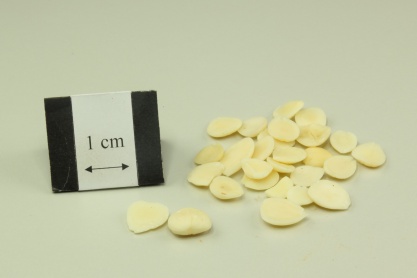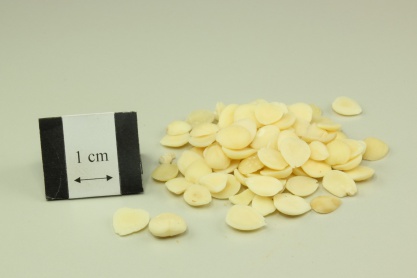苦杏仁
- ENG
- Bitter Apricot Seed
- LATIN
- Armeniacae Amarum Semen
| Medicinal Group | Cough-suppressing and panting-calming medicinal |
|---|---|
| Source | Dried ripe seed of Prunus armeniaca L. var. ansu Maxim., Prunus sibirica L., Prunus mandshurica (Maxim.) Koehne or Prunus armeniaca L. (Fam. Rosaceae) |
| Nature and Flavors | bitter; slightly warm; slightly toxic |
| Meridian Affinity | Lung, Large intestine |
| Actions | To direct qi downward to relieve cough and asthma, and relax bowels |
Family
Rosaceae
Part used
Seed
Indications
Cough and asthma accompanied with stuffiness in the chest and profuse expectoration; constipation due to deficiency of blood and fluid
Cautions
Overdose may cause intoxication
Report on adverse effect
Numerous cases of cyanide poisoning from amygdalin have been reported [1, 2, 3, 4]
Reference
Smith FP et al. Laetrile toxicity: a report of two patients. Cancer Treatment Reports, 1978, 62:169–171.
Rubino MJ, Davidoff F. Cyanide poisoning from apricot seeds. Journal of the American Medical Association, 1979, 241:350.
Kalyanaraman UP et al. Neuromyopathy of cyanide intoxication due to“laetrile” (amygdalin). A clinicopathologic study. Cancer, 1983, 51:2126–2133.
Leor R et al. Laetrile intoxication and hepatic necrosis: a possible association. Southern Medical Journal, 1986, 79:259–260.












